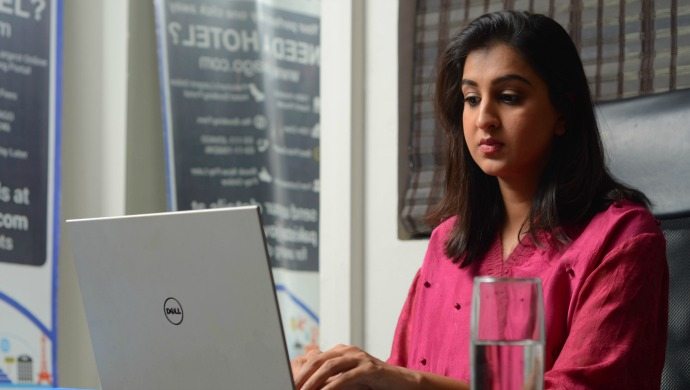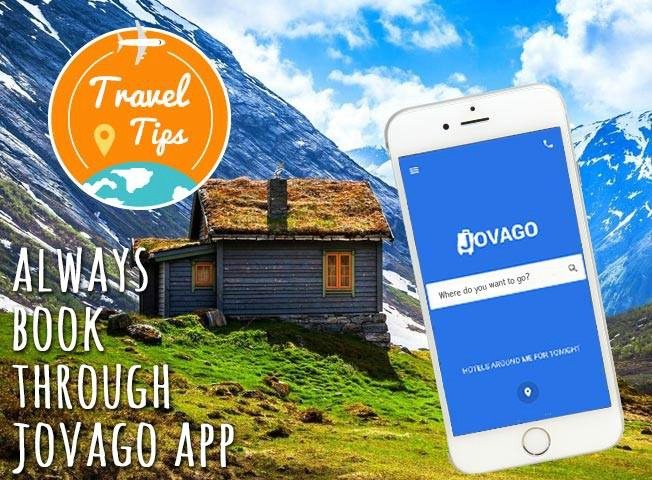Started in 2015, Jovago has partnered with over 2,000 hotels and guest houses across 160-plus cities in Pakistan

Jovago Pakistan MD and CEO Nadine Malik
“I really don’t know,” she replied when e27 asked why the Pakistan government was not serious about nurturing startups. “Maybe, the mentality is much more traditional and it feels more secure to invest more and more in the already established, tried and tested industries,” she said.
Pakistan’s startup ecosystem is several years behind that of its neighbour, India. In spite of the fast-growing middle-class population and smartphone penetration, Pakistan has been out of the world startup radar for many reasons, including security concerns, lack of government support, and absence of proper regulatory framework.
Nadine Malik — an MBA from INSEAD and former Management Consultant at Bain and Company — was also a bit apprehensive when her new employer Rocket Internet asked her to build a new travel website in Pakistan in 2014. She knew it was a tough job, as e-commerce in this South Asian country was still taking baby steps back then.
Must Read: Working from home makes me more productive, and I want to do it forever
“There was no concept of online hotel booking when we launched Jovago in Karachi back in 2015,” she told e27 over a Skype call. “We had to create a market, as most booking were still happening offline.”
Betting big on burgeoning domestic tourism
For Jovago, international travel booking was out of the question when it started. International travel was becoming a lot more unaffordable due to depreciation of Pakistani Rupees and rising visa and security issues.
However, there was a lot of untapped tourism potential in the domestic segment. “Travellers were facing a lot of issues within the country, hence we found a business opportunity to grow,” Nadine added.
Since then, Nadine and team relentlessly worked towards the goal of popularising online travel booking in the country.
“More and more people are travelling up north even to the most remotest of locations now. Better Internet access in the northern areas of Pakistan are encouraging more travel there. Karachi is getting more and more bookings as the city security conditions have improved a lot over past year. Good hotels are having up to 90 per cent occupancy now,” she remarked.
Due to the China-Pakistan Economic Corridor, a lot of investment is made in the construction of better roads to encourage more travel. This has also helped boost domestic tourism.
Currently, Jovago has listings of over 2,000 hotels and guest houses on its portfolio spread across 160 cities. It has accommodation options even in the most remotest locations. “This gives hotels and guest house owners the opportunity to attract tourists by having more choice. Through Jovago, we hope to encourage people to travel within Pakistan and improve our tourism industry. Previously, the only way to book hotels was via a travel agent. Now we want consumers to be able to go to our website and have a range of hotels to choose from,” she revealed.
Also Read: How three Pakistani startup Founders are preparing for 5G
Customers can either make partial payments at the time of booking at Jovago, or at the hotel check-in. Jovago also offers a mobile payment option under the brand Easy Paisa. However, large chunk of payments still happen offline. This is because online payments system is not much developed. Card (credit/debit)-based transactions are also abysmally low. Above all, there is no regulatory framework from government for e-commerce startups. This makes the customers apprehensive of making online bookings.
Nadine claims that Jovago also offers the best price guarantee. When a user on Jovago finds a lower price advertised by other online booking services, he/she simply needs to contact Jovago’s customer care who will process the request for a refund. The difference in pricing will be provided in the form of cash back if the booking was made in advance, or Jovago will match the price if the payment is due on arrival.
Online travel booking in Pakistan is still negligible. Bookings are mostly dependent on the referrals made by friends and family.
Jovago was first launched in Africa under the brand Jumia Travel. After its success, Rocket Internet decided to enter Pakistan. Besides Pakistan, Jovago currently operates in Bangladesh and Myanmar.
“We are seeking to strengthen our presence in Asia. We are up for expansion in the countries nearby which share similar demographics. We are also in talks to raise next funding round,” she commented.
Risk-averse attitude
Nadine admits that the startup ecosystem still has a very long way to go. There are only two government-backed incubators, both in the state of Punjab. Additionally, there is still a general risk-averse nature among the people.
“Only foreign investments are looked upon credible and less risky. Little or no initiatives were taken by the government to ignite trust amongst general public since there are no customer protection measures for e commerce firms. These are affecting the startup ecosystem adversely,” Nadine added.

Nadine said that many students are opting to start their own ventures after college. There is a good number of developers and good minds coming out every year. “However, they don’t get much mentoring or angel investors to groom them. Usually when you find a good investor, there is a good check and balance and you may also get good mentoring for your startup.”
Any advice for young entrepreneurial talents in Pakistan?
- “Test and retest your business model before you launch it in the market. Be open to feedback and be flexible to ideas by customers;
- A lot of people have good ideas, but your focus should be more and more on improving the operational efficiencies;
- Have a long term vision for the company and keep improving operationally.”
—-
The post Rocket Internet travel site Jovago carves out a niche in Pakistan despite negative sentiments appeared first on e27.